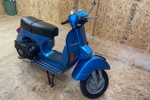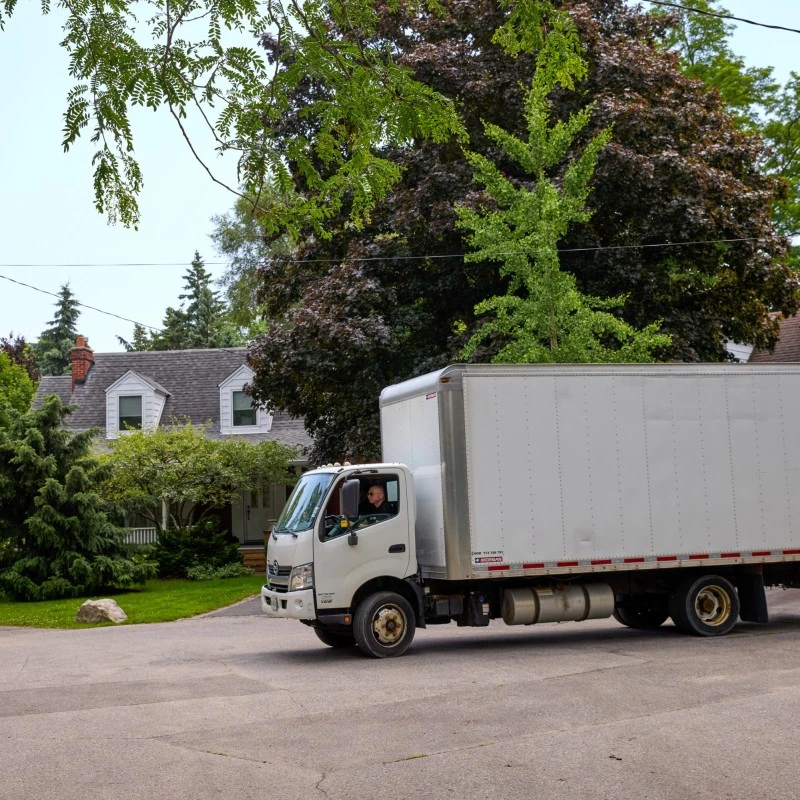How much do you need to earn to live comfortably in Victoria? [2025]

![How much do you need to earn to live comfortably in Victoria? [2025] How much do you need to earn to live comfortably in Victoria? [2025]](https://cdn.topmove.ca/image/blog/cb0aa3287251606ff7f6b5c9bbf8d2a1.jpeg)
Victoria is one of the most appealing and popular cities in Canada for a myriad of reasons. Its mild climate means that it rarely dips below freezing during winter, and if it does snow, the snow only lasts for a day or two. There are beautiful beaches in every direction, and Victoria has all of the modern amenities of a metropolis, but without the big-city congestion and overcrowding. The universities are renowned and the tourism industry is thriving.
We've put together a guide that outlines the income needed to live comfortably in VIctoria. If the "Garden City" calls to you as a potential city to move to, keep reading!
How much will I pay for rent in Victoria?
Well, Victoria isn’t cheap. Its popularity has caused rental and property prices to rise, on par with Vancouver. However, there are still some neighbourhoods outside of the downtown core that offer more affordable rental apartments and homes. The average monthly rent for an entire home is $2,428, while a 1-bedroom apartment averages $1,769 per month.
There are neighbourhoods in VIctoria that are exceptionally wealthy, and renting in these areas (if renting is even possible) is expensive. These neighbourhoods include:
-
The Uplands
-
South Oak Bay
-
Ten Mile Point
-
Gonzales
-
Rockland
-
James Bay
The following neighbourhoods offer rentals that are a bit more budget friendly, in the $1,200 to $1,500 range:
-
Esquimalt
-
West Saanich
-
Langford
-
View Royal
-
Colwood
-
Vic West
If you live with your partner, or are willing to share have roommates, you can expect to pay about $850 - $950 per month in rent.
Average monthly rent: $1350
What if I have a mortgage?

If you are ready to take the leap and buy a home, you can calculate your monthly mortgage based on the average home price in Victoria, which is $1.3m. At this price, with a 20% down payment and a 6.49% interest rate over a 30-year term, the estimated monthly mortgage payment would be approximately $6,570. Note that homes at this price are usually in the more affluent neighbourhoods listed above.
A more affordable neighbourhood such as Esquimalt has average house prices of $980,000. Using the same calculations above, the average monthly mortgage payment would be around $4,950.
Average monthly mortgage payment, split with a partner: $2880
How much will I spend on food in Victoria each month?
 Because Victoria is located on an island, all food shipments must travel on the ferry. This means that groceries cost more in Victoria than other cities on mainland Canada. Victoria also has lots of health food stores and locally made specialty food products, which also tend to be more expensive. That being said, there are a plentitude of major grocery chains where food prices are reasonable.
Because Victoria is located on an island, all food shipments must travel on the ferry. This means that groceries cost more in Victoria than other cities on mainland Canada. Victoria also has lots of health food stores and locally made specialty food products, which also tend to be more expensive. That being said, there are a plentitude of major grocery chains where food prices are reasonable.
For a family of four in Victoria, the average monthly grocery bill is around $1,900. A single person can expect to spend about $450 per month. For couples, it’s around $800 per month.
Monthly food costs for 1 person: $450
How much will my electricity and monthly bills be?
Victoria is known for its mild winters compared to the rest of Canada, so less power is needed to keep your home warm in the cooler months.
Household utilities include electricity, heating, water, garbage collection, air conditioning, and internet. For a family of four, the total monthly bill for utilities and internet would range from approximately $300 to $500, depending on usage and service providers.
Monthly bills per person: $200
What does it cost to get around in Victoria?
A major highlight to Victoria that separates it from other important Canadian cities is that it is still small enough that you can bike everywhere, and the weather permits cycling year-round. Furthermore, The city features the “Galloping Goose” trail. The Galloping Goose is a 55-kilometre multi-use path stretching from Victoria to Sooke. Popular for cycling, walking, and commuting, the trail connects with other regional routes like the Lochside Trail. Essentially, you can get around in Victoria for solely the low cost of occasional bike repairs.
Public transit is often underrated but plays an important role in helping the planet by reducing traffic and emissions. Its affordability makes it accessible to all demographics. A single bus ride in Victoria costs $2.50, an unlimited day pass is $5 or you can opt for a monthly pass at $85. Seniors and youth enjoy discounted monthly passes at $45. Victoria also offers a reloadable smart card called “U-PASS" to make things even more convenient.
If you prefer driving, expect to spend around $100 to $150 per month on gas, depending on your vehicle and driving habits.
Average monthly transportation cost: $100
How much does it cost to eat out in Victoria?
 How much you spend on dining in Victoria depends largely on how often you eat out and where you choose to dine.
How much you spend on dining in Victoria depends largely on how often you eat out and where you choose to dine.
For fast food, expect to pay around $12 per meal. Casual dining at a mid-range restaurant, including a drink, will run about $30 per person.
If you prefer higher-end dining, meals typically range from $50 to $65 per person, and at upscale restaurants, you could be looking at $80 or more per person for both food and drinks.
Monthly restaurant costs: $180 - $300 per person
What will I spend on entertainment while living in Victoria?
Entertainment options in Victoria are diverse for a smaller city. Locals can choose to see music, theatre or dance at the Royal Theatre and other venues. Parks, beaches and trails keep the outdoor enthusiasts busy, and the Inner Harbour downtown is bustling with street performers, boat tours, and whale watching excursions. Museums and galleries line the streets, and live and electronic music are popular in the bars and clubs. Dining out, shopping at local markets, and attending seasonal festivals also provide unique entertainment experiences.
Monthly entertainment costs: $125 - $200 per person
How much can I expect to spend on basics?
Essential living costs cover rent or mortgage payments, groceries, transportation, and occasional entertainment or dining out. In Victoria, monthly expenses can range from $2500 to $3,500 for an individual. For a small family with a modest lifestyle, the monthly budget is likely to be around $5,000.
To live modestly as a single person in Victoria, you'll need an annual income of roughly $35,000, which is the same as a full-time minimum wage salary in BC. This figure is before taxes, RRSP contributions, and CPP deductions, and it doesn't include savings, vacations, or unforeseen expenses like car repairs or appliance replacements. On average, Canadians spend about $4,000 annually to maintain a vehicle.
If $35,000 covers the basics, how much do I need to earn to live comfortably?
To enjoy a comfortable lifestyle as a single person in Victoria, you'd need to make at least $55,000 a year. This income would allow you to rent an apartment in the downtown area or a desirable neighbourhood, while still having some flexibility in your budget for leisure and savings. Achieving a good work-life balance and peace of mind are key to feeling settled.
With an income of $55,000, you'd have the opportunity to save or invest, focus on your well-being, buy new clothes, and indulge in various forms of entertainment, including the chance to take a few vacations.
For a family of four, a combined annual income of around $120,000 or more would be ideal for a comfortable life in the city.
What do our customers say?


![The Cost of Living in Victoria [2025] The Cost of Living in Victoria [2025]](https://cdn.topmove.ca/image/blog/012c60baf3a9dd52b2112857fe508e4c.jpeg)
![The Cost of Living in Victoria [2025] The Cost of Living in Victoria [2025]](https://cdn.topmove.ca/image/blog/6d9677f2a86a234e64f7f5275d9bff62.jpeg)
![How much do you need to earn to live comfortably in Vancouver? [2025] How much do you need to earn to live comfortably in Vancouver? [2025]](https://cdn.topmove.ca/image/blog/7036030cc91de9cff4153dc88aa88f85.jpeg)
![How much do you need to earn to live comfortably in Toronto? [2025] How much do you need to earn to live comfortably in Toronto? [2025]](https://cdn.topmove.ca/image/blog/de7b110360e9510bfcb89724b7ef9af4.jpeg)
![How much do you need to earn to live comfortably in Montreal? [2025] How much do you need to earn to live comfortably in Montreal? [2025]](https://cdn.topmove.ca/image/blog/80e0ee82a5a92d9451b96ff875513ee4.jpeg)
![How much do you need to earn to live comfortably in Calgary? [2025] How much do you need to earn to live comfortably in Calgary? [2025]](https://cdn.topmove.ca/image/blog/46fef724030602a02f51110ffb3ac569.jpeg)
![How much do you need to earn to live comfortably in Winnipeg? [2025] How much do you need to earn to live comfortably in Winnipeg? [2025]](https://cdn.topmove.ca/image/blog/d52ddc1f425f60fd553dcc00f7eb0fb5.jpeg)

![The Cost of Living in Canada [2025] The Cost of Living in Canada [2025]](https://cdn.topmove.ca/image/blog/fd5e6f8de7a01a874376620f785ffdba.jpeg)

![The Cost of Living in Toronto [2025] The Cost of Living in Toronto [2025]](https://cdn.topmove.ca/image/blog/ded0549bf885e2463f6b3516d9f8f021.jpeg)
![The Cost of Living in Montreal [2025] The Cost of Living in Montreal [2025]](https://cdn.topmove.ca/image/blog/3d9ba911fae51ef6bf042019500f2c4b.jpeg)
![The Cost of Living in Calgary [2025] The Cost of Living in Calgary [2025]](https://cdn.topmove.ca/image/blog/44a5bcb6ebf6c658f5c5fe30ab7077c9.jpeg)
![The Cost of Living in Winnipeg [2025] The Cost of Living in Winnipeg [2025]](https://cdn.topmove.ca/image/blog/8874f5688baa4a1291d7eae6c507f8aa.jpeg)
![The Cost of Living in Edmonton [2025] The Cost of Living in Edmonton [2025]](https://cdn.topmove.ca/image/blog/85d8f0085c5276a3f3add5828109b82a.jpeg)
![The cost of living in Ottawa [2025] The cost of living in Ottawa [2025]](https://cdn.topmove.ca/image/blog/05c56698337852b128efa8b1144e6466.jpeg)









